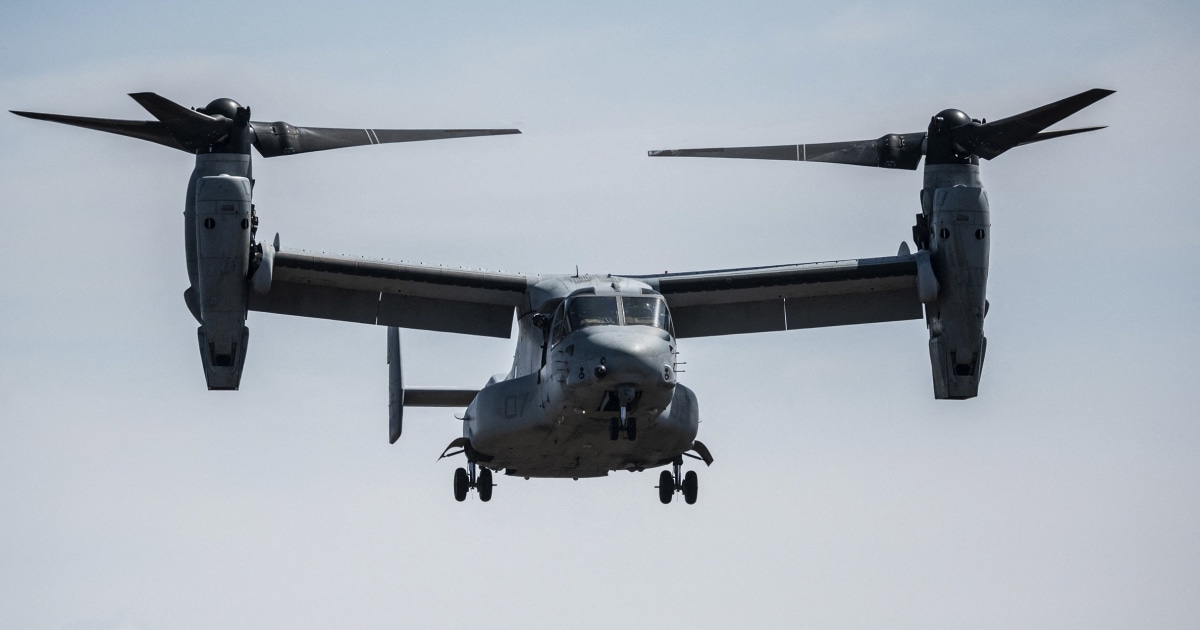The coast guard said in a statement that a member of the public called 118, Japan’s version of 911, at 2:47 p.m. (12:47 a.m. ET). The coast guard said it immediately deployed patrol vessels and aircraft to the scene.
At 4 p.m. (2 a.m. ET) a rescue team including boats from the coast guard and a local rescue center found “wreckage-like debris” and an overturned life raft, the coast guard said. There were no people in the raft, the coast guard said.
NBC News has contacted Kadena Air Base on the island of Okinawa, the largest U.S. Air Force base in the region, but did not immediately receive any comment.
Hiroyuki Miyazawa, Japan’s vice defense minister, told the Japanese media that the incident involved a CV-22 Osprey from the U.S. Air Force Yokota Air Base.
“In light of this incident, the minister of defense has asked the relevant departments to cooperate with the Japan Coast Guard to confirm whether or not there are any victims and to do their utmost to rescue them,” he said.
Asked why he’d not called the incident a crash Miyazawa said: “The U.S. side explained to us that the pilot did his best until the very end, so we’re using the term ‘emergency water landing.’”
The MV-22 Osprey is a hybrid aircraft famous for its unique “tiltrotor” flight system, which allows it to take off and land like a helicopter but fly like an airplane.
There have been a number of fatal accidents involving the aircraft in recent years.
An Osprey with 23 U.S. marines on board crashed in Australia in August during a routine training exercise, killing three including its pilot.
All five U.S. marines on board an MV-22 died after it crashed in San Diego during a training mission in August 2022, following the death of four U.S. marines on board an MV-22 in Norway five months earlier.
The Defense Department stood by its use of the plane in 2015 after one marine was killed and 21 injured in crash at a military base in Hawaii.
Developed by Boeing and Bell Helicopters, the MV-22 has two rotors on each wing, allowing it to take off and land like a helicopter, known as VTOL — vertical takeoff and landing. The rotors can rotate forward 90 degrees once in flight, allowing it to operate like a conventional rotor-powered plane.
This is a developing story, check back here for updates.
Arata Yamamoto reported from Tokyo, and Patrick Smith from London.

